Here’s What Vitamin Supplement You Should Take Based on Your Age Group
Vitamin supplements are vital organic substances your body's cells require to develop, function and heal. They make the physique and your mind healthier, more powerful, and more youthful.
Vitamins are organic substances that humans require in limited amounts. The majority of vitamins must come from food as the body doesn't produce them, or it produces very small amounts of them.
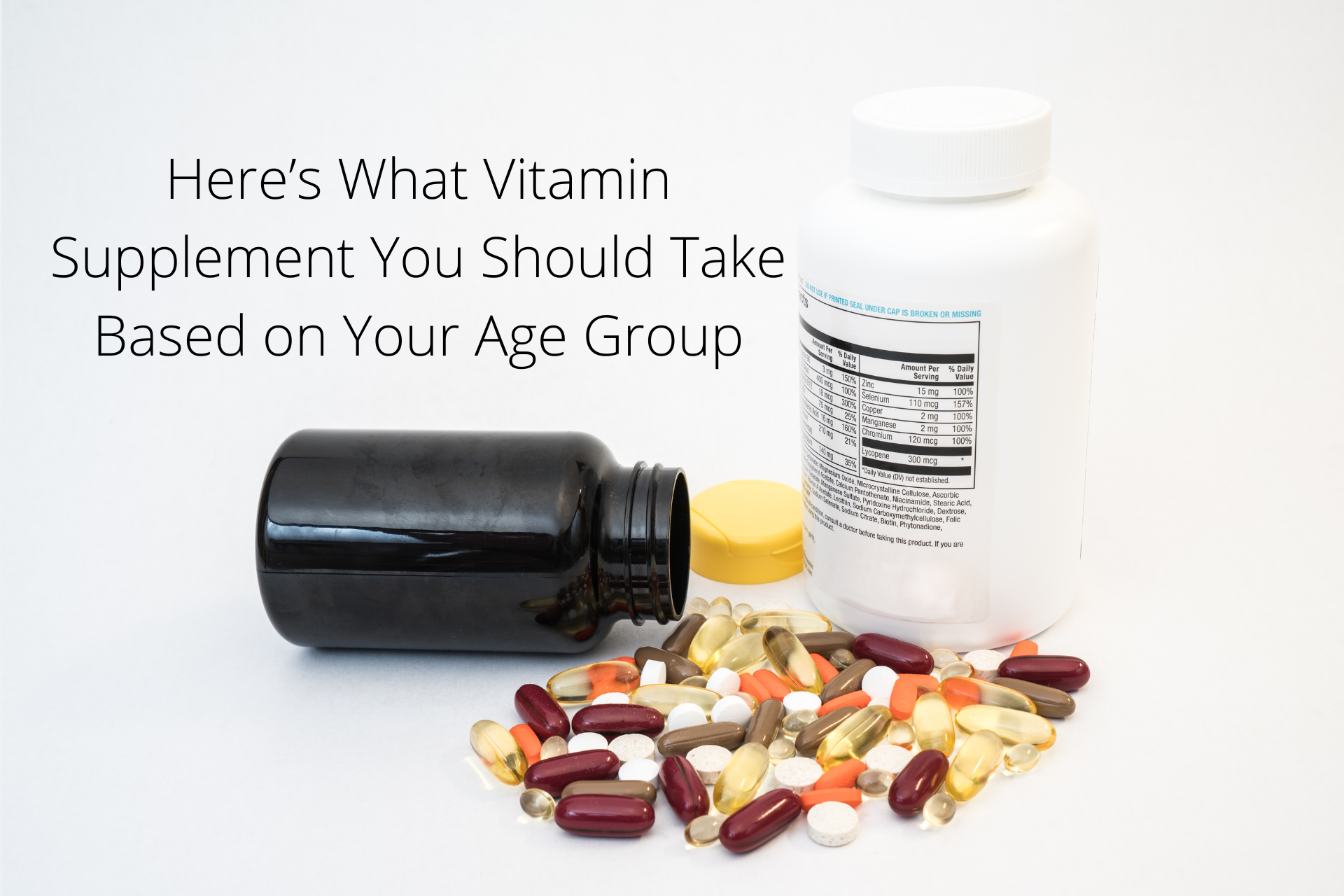
Every organism has its own needs for vitamins. Different vitamins play various roles within the body, and each person needs a different amount of each vitamin to be fit and healthy.
How do you define vitamins?
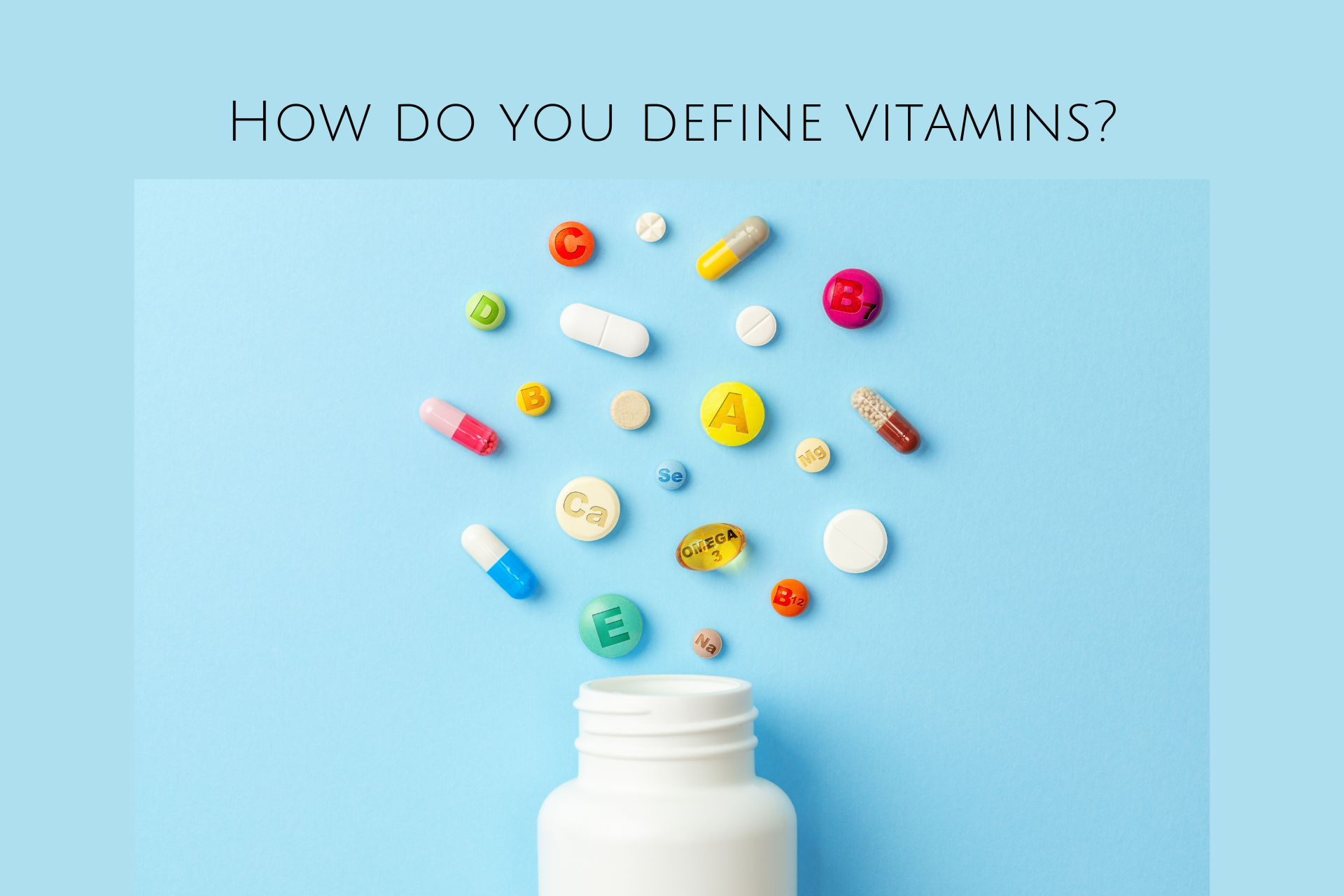
Vitamins are organic substances present in minute amounts in natural foodstuffs. Too little of any particular vitamin may increase the risk of certain health issues. Vitamins are organic compound, meaning that it is carbon-based. It's also a vital nutritional element that our bodies require through food.
Water-soluble and fat-soluble Vitamins
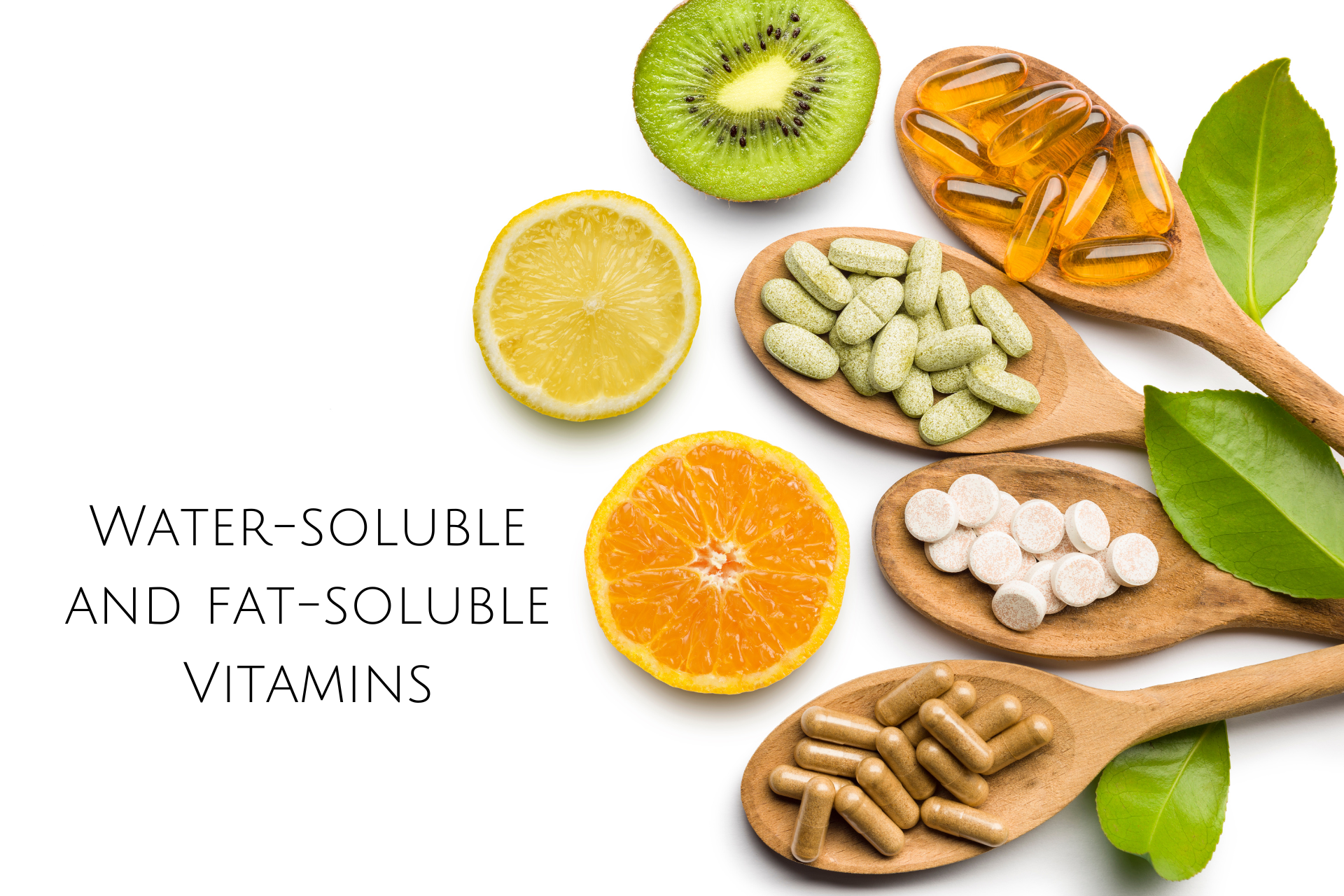
Vitamins can be soluble or dissolvable in water or fat. The following sections will describe both types of vitamins:
- Fat-soluble vitamins
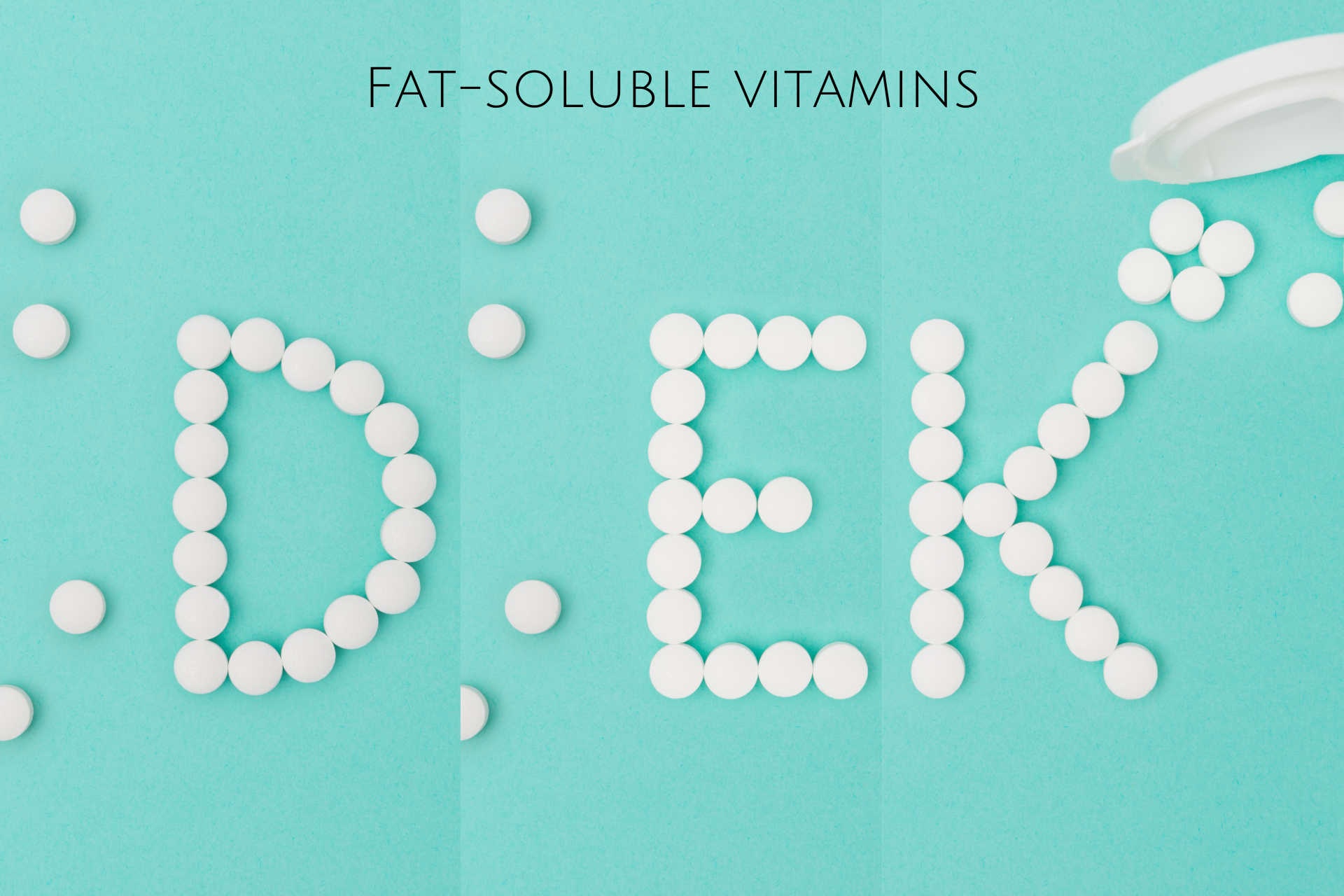
Vitamins D, E, and K can be found in fats. The body stores the fat-soluble vitamins within fat tissue and the liver. The reserves of these vitamins may remain within the body for days and even months. Dietary fats assist the body in absorbing fat-soluble vitamins via the digestive tract. - Water-soluble vitamins
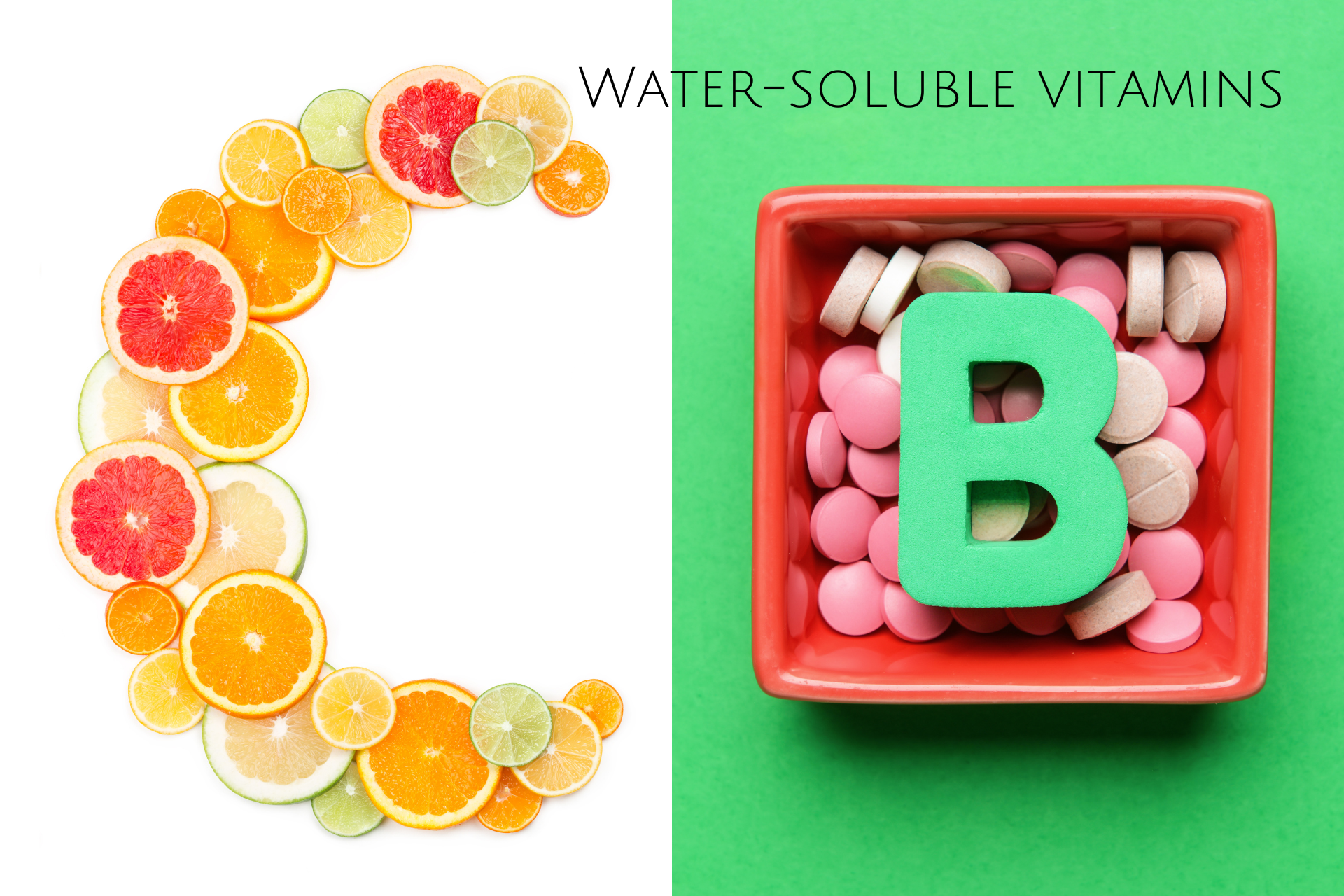
Water-soluble vitamins don't stay within the human body long and can't be stored. They are eliminated from the body through the urine. Due to this, people require a higher frequency intake of water-soluble vitamins compared to fat-soluble vitamins. Vitamin C, as well as all B vitamins, are water-soluble.Most people would have at least some knowledge of vitamins, even if the ones you tried were in a cartoon character shape. But with the sheer number of supplements available and myriad options, picking the right supplements and vitamins is often confusing. This is made more complicated by the contradicting facts and misleading advertisements. You can improve your health with time; however, how do you ensure that you get the correct vitamin supplement?
The most important thing is to be aware of the essential vitamins and nutrients of your age group, evaluate your diet, and think about how your lifestyle and health goals impact your health. Remember that supplements and vitamins do not intend to substitute for the healthy food choices you make. Beyond nutrients, fresh vegetables and fruits offer antioxidants, phytochemicals, fiber, and phytochemicals, all of which are vital.
What are all the Vitamin Supplements You Must be taking Based on Your Age Criteria?
Below, you can find the vitamin supplements that you must intake based on your age group:
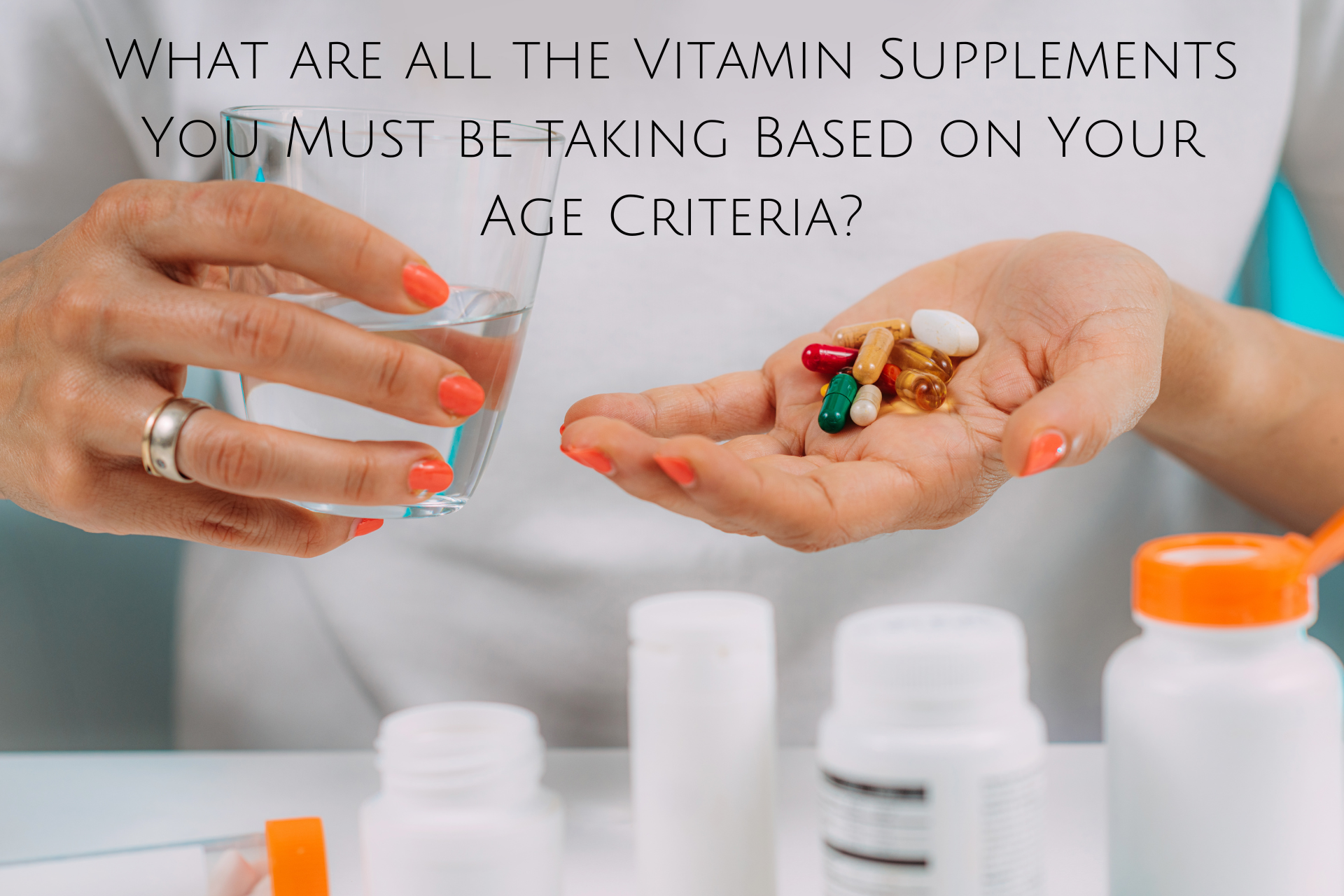
In your 20s and 30s
- Calcium
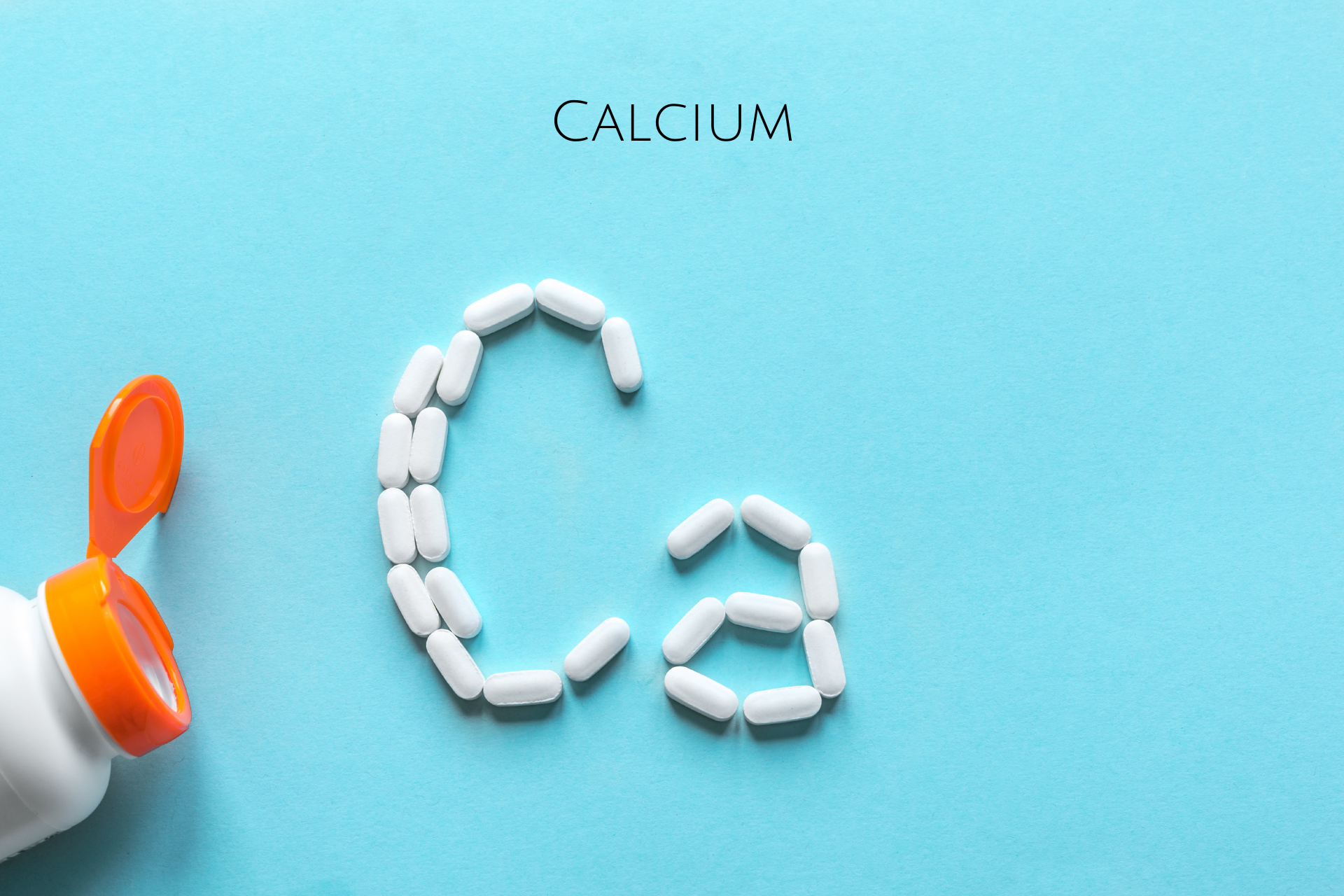
These are the times to build up your bone mass to increase your bone weight. If you're not getting sufficient calcium from your diet, you may require an elemental calcium supplement. It refers to the amount of calcium in a supplement available to your body's ability to absorb the remainder are the compounds that make up the supplement. However, when supplementing your calcium intake, ensure you read the label carefully. - Vitamin D
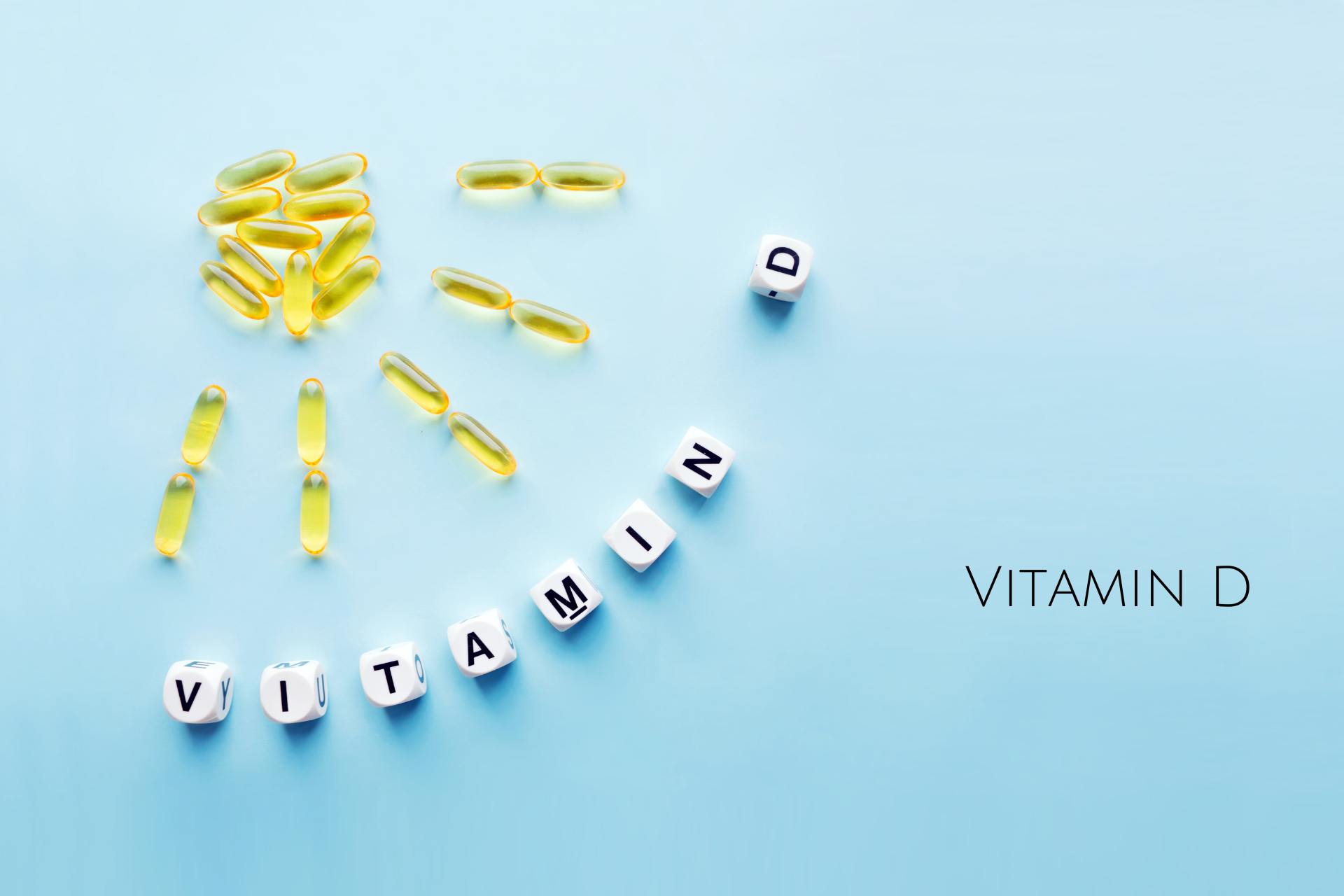
The recommendations for vitamin D aren't always consistent. Some recommend talking with a physician about taking as high as 1,000 IU of vitamin D daily in winter and the fall when exposure to sunlight is low. The recommended amount could increase in the future; however, currently, the recommended amount is 200 IU of vitamin D per day. Incorporating Vitamin D (along with calcium) during your 20s will increase your bone strength and help keep it up once you reach the 30s or 40s. - Folic Acid

For women in their early childbearing years, Folic acid is suggested if you're thinking of having a baby in the near future. It is recommended to take it before becoming pregnant to ensure your levels are sufficient since low levels of folic acids can lead to numerous birth problems. The recommended dosage of Folic acid can be as high as 400 micrograms a day for those who are 14 or over. - Iron
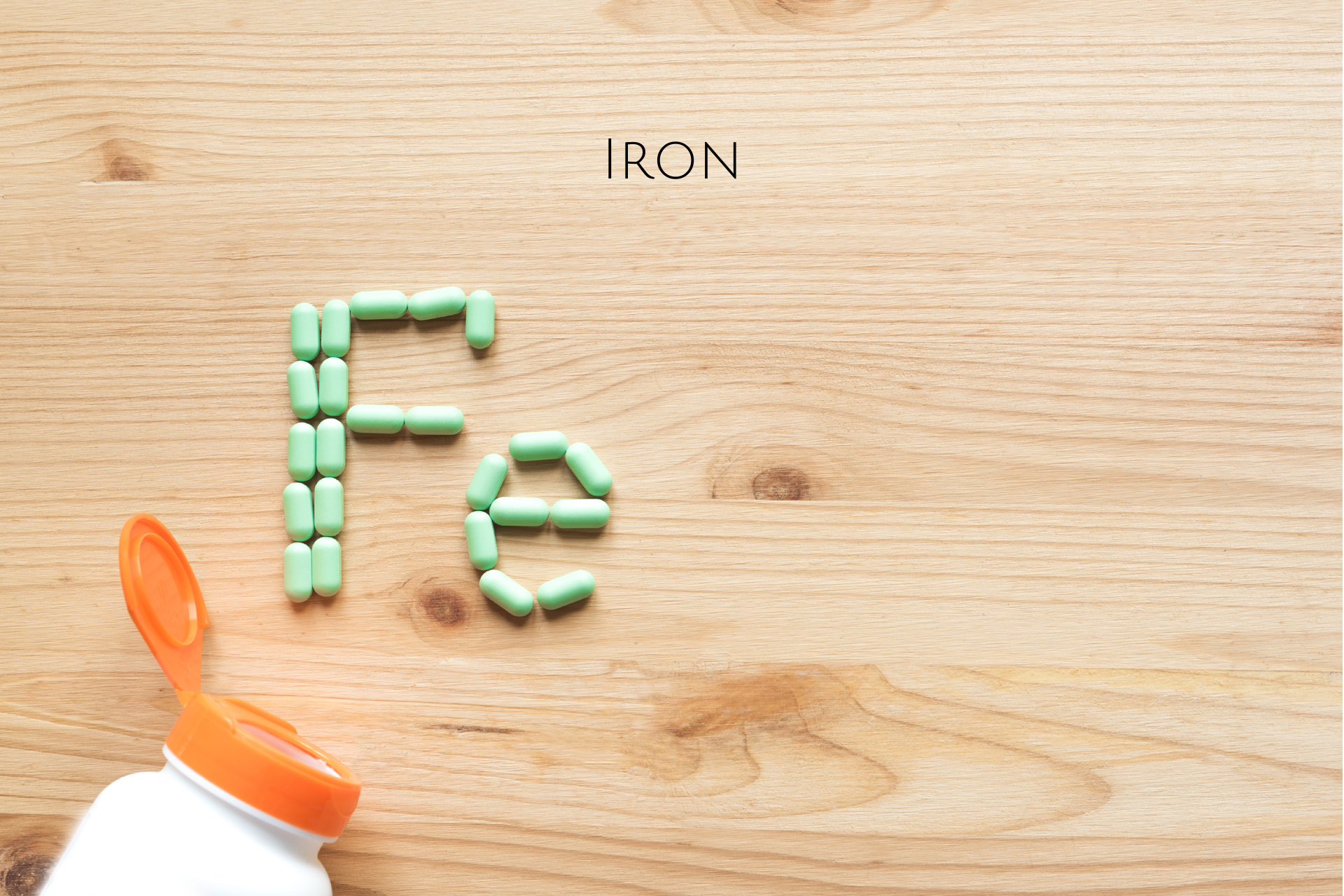
Iron is another important factor for women going through menstrual cycles. Iron deficiency is common among pregnant women, leading to anemia that can cause fatigue and weakness. Iron allows white blood cells to transport oxygen to the body's cells. In iron via foods like iron-fortified cereals or eggs, look for it in a supplement that contains 16 to 20 mg, or talk to your doctor regarding the supplementation of iron specifically.
In your late 40s
- Calcium

After 40, the focus is on the prevention of osteoporosis. You must ensure that you get 1,000 milligrams daily of calcium. Women have a nutrition deficit over 40 years old because they do not consume sufficient calcium-rich food items like milk and dairy products. This puts them at greater risk of osteoporosis, falls, and even certain cancers. - Vitamin D

The recommendations for Vitamin D intake during those in your 30s or 20s remain in force into your 40s. If you're unsure of the amount of vitamin D, you need to consult your physician to take a Vitamin D blood test.
- Folic Acid

Pregnant? Increase your intake daily of folic acids to 600 mg. To satisfy this requirement, women are advised to continue taking the multivitamin with 400 mg of folic acid during pregnancy.
- Iron

When you are in your 20s or 30s, you should consume 27.5 mg. of iron every day when you're pregnant, either through your diet or through a combination of supplements and diet. For women who are not pregnant, you are advised to strive for 18 mg every day.
In your 50s
- Multivitamin
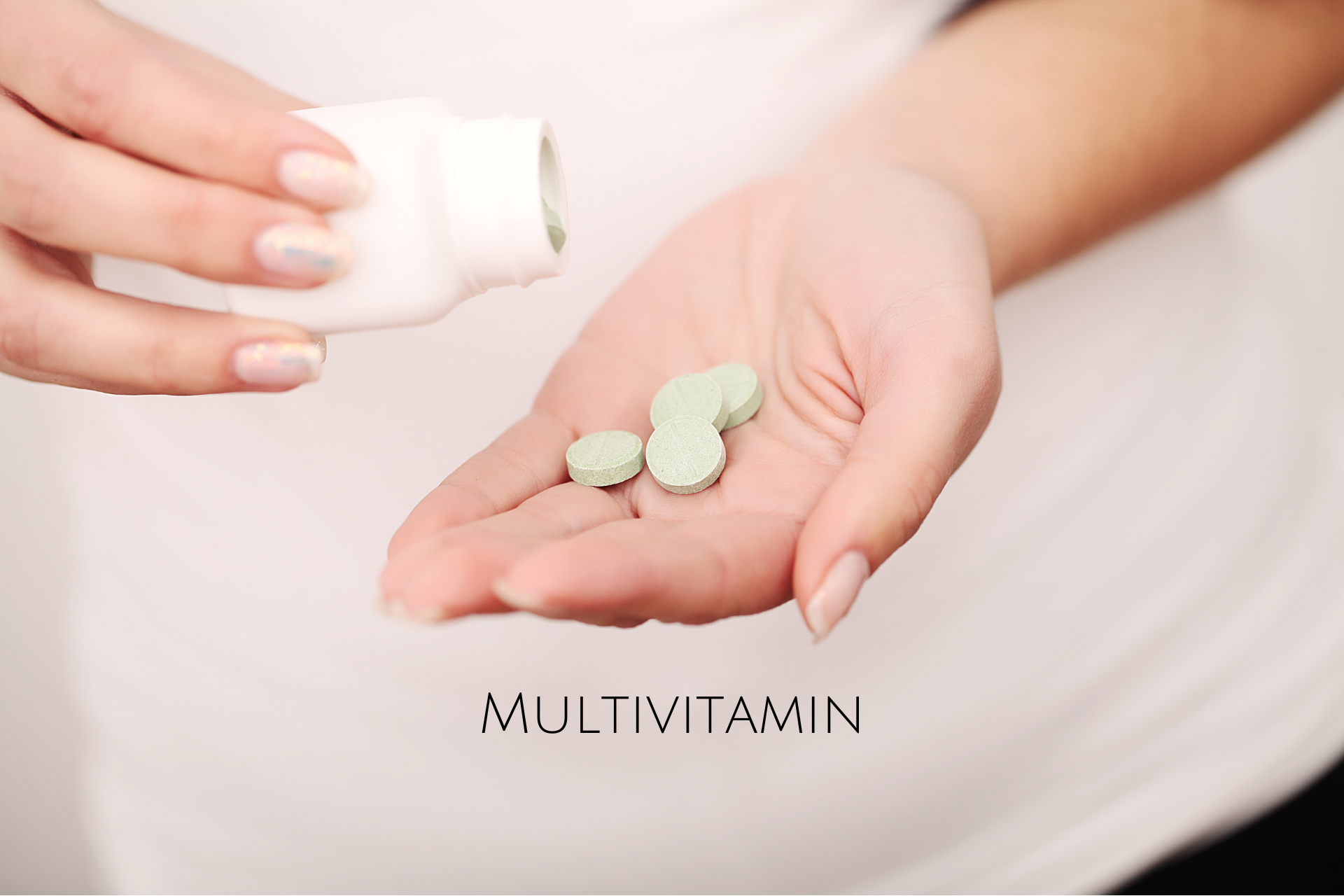
It's the right time to upgrade to multivitamins formulated for adults 50 and older. These multivitamins contain significantly less iron than the multivitamins designed for women younger. For instance, Centrum Forte for women aged 18 to 49 has the equivalent of 10 milligrams of iron per tablet. Centrum Select 50+, designed for women over 50, contains only 4 mg of iron per tablet. However, it includes vitamin B12 to meet the changing needs of nutrient intake. - Vitamin D

As with calcium Osteoporosis Canada suggests the intake of vitamin D to at a minimum of 800 IU daily. There are growing studies on the benefits of vitamin D, particularly for bone health and bone health. It is difficult to get the recommended daily dose of vitamin D from diet alone. - Vitamin B12
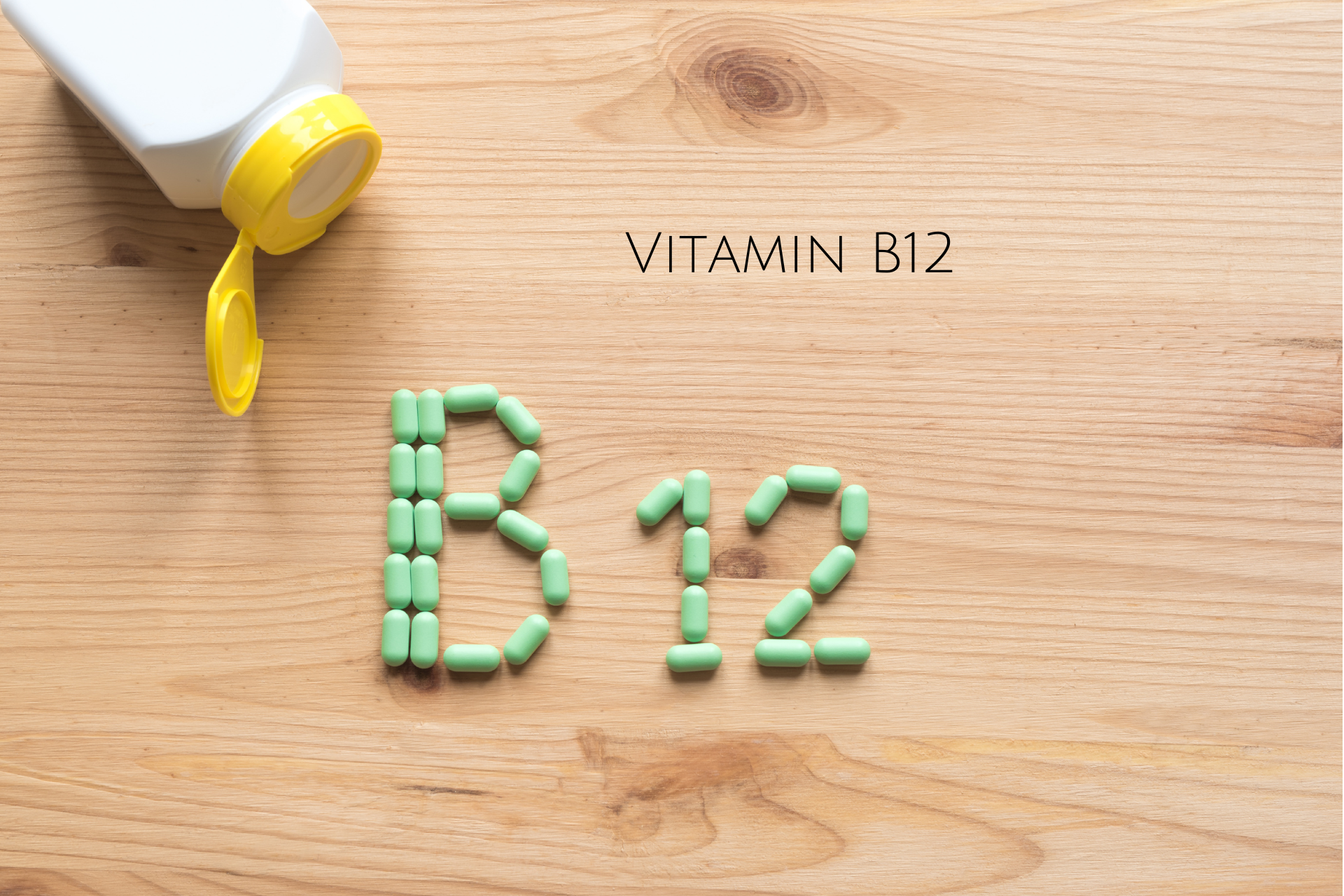
It is believed that your Vitamin B12 requirements increase after age 50 because the gastrointestinal tract cannot absorb vitamin B12 in the same way as the digestive tract of a young person. Those older than 50 get 2.4 micrograms of vitamin B12 every day, most commonly through eating food supplemented with vitamin B12 or taking a supplement with vitamin B12.
In your 60s

Although the general needs will be similar to those in the 50s, check your multivitamin to ensure you're getting all the nutrients your body requires as new health concerns like eye health or heart disease may appear. Certain multivitamins contain antioxidants, such as lutein, that could help protect against macular degeneration and lycopene, which can assist in preventing heart diseases.
Vitamin supplements have many benefits

If you do not eat meals or don't like the taste of these foods, then you should consider adding nutritional supplements to your diet. Find some benefits that come along with vitamin supplements below:
- It is possible to use it at any time

Supplements with nutritional value can bring about great results for a person regardless of age. These supplements can be taken at any time. Most nutritional supplements are made of natural components that are safe for people of all ages. - In combating the spread of disease

Vitamin Supplements are an excellent method to boost your immune system and strengthen your internal organs to fight off illnesses. It is essential to get enough vitamins and minerals to ensure your well-being. The necessary iron, calcium, phosphorus, and iron are available through supplements regularly. When searching for a specific nutrient, it's crucial to know the ingredients. - It's simple to accomplish
It is possible to mix it in with milk or water and then take it. You can pick from various nutritional supplements based on your preferences or your doctor's instructions.
Wrapping Up
Before taking any vitamin supplements, you should determine whether your body is lacking it and not producing enough or receiving enough. Since if your body is not getting the right amount of it, it will eventually throw away the extra minerals and vitamins that you're feeding it, or become overloaded, leading to more issues.
Avoid taking supplements for longer than 8-12 months at a time. It's essential to rest. In addition, taking supplements should not mean you should cut out eating healthy foods and a balanced diet.
Supplements such as protein, vitamins, and minerals are essential to the diet of adolescents to cope with a hectic lifestyle and the nutritional deficiencies in the food one consume. However, effective absorption occurs when a broad range of nutrients are compatible. So, supplementing one nutrient over the other leads to lower effectiveness.
Recent Posts
-
The Science Behind Mycotoxin Detox: What Does Research Say?
With increasing awareness of the impact of mycotoxins on health, the concept of mycotoxin detoxifica
-
The Science Behind Plant-Based Meat: How Technology is Changing Our Food
In recent years, the food industry has witnessed a seismic shift with the rise of plant-based meat a
-
The Synergy of NAC, DIM, and Myo-Inositol for Overall Wellness
In the world of nutritional supplements and holistic health, certain ingredients are emerging as pow





